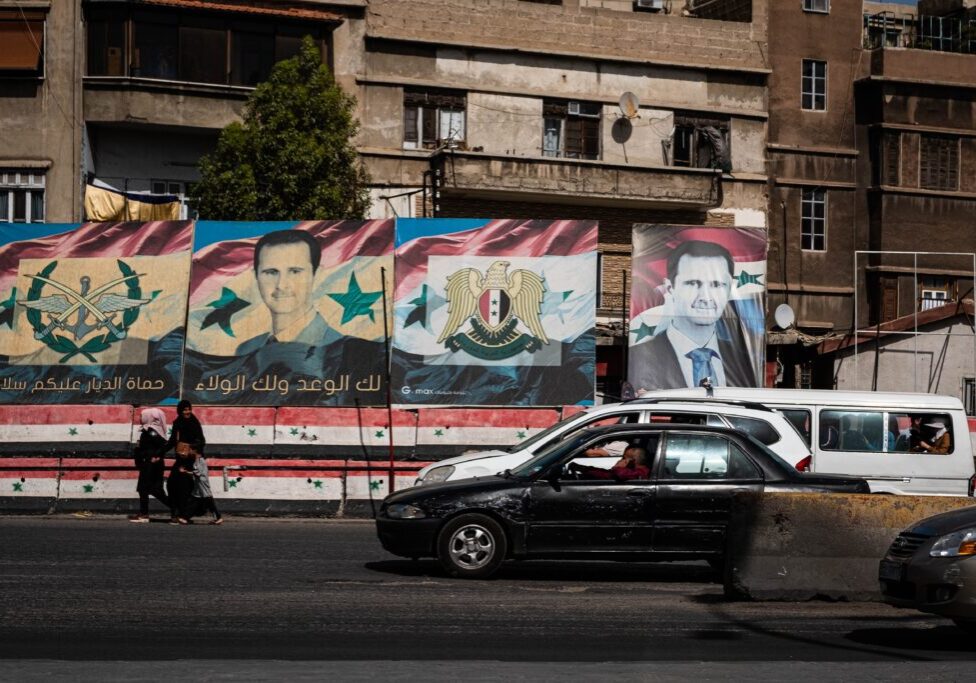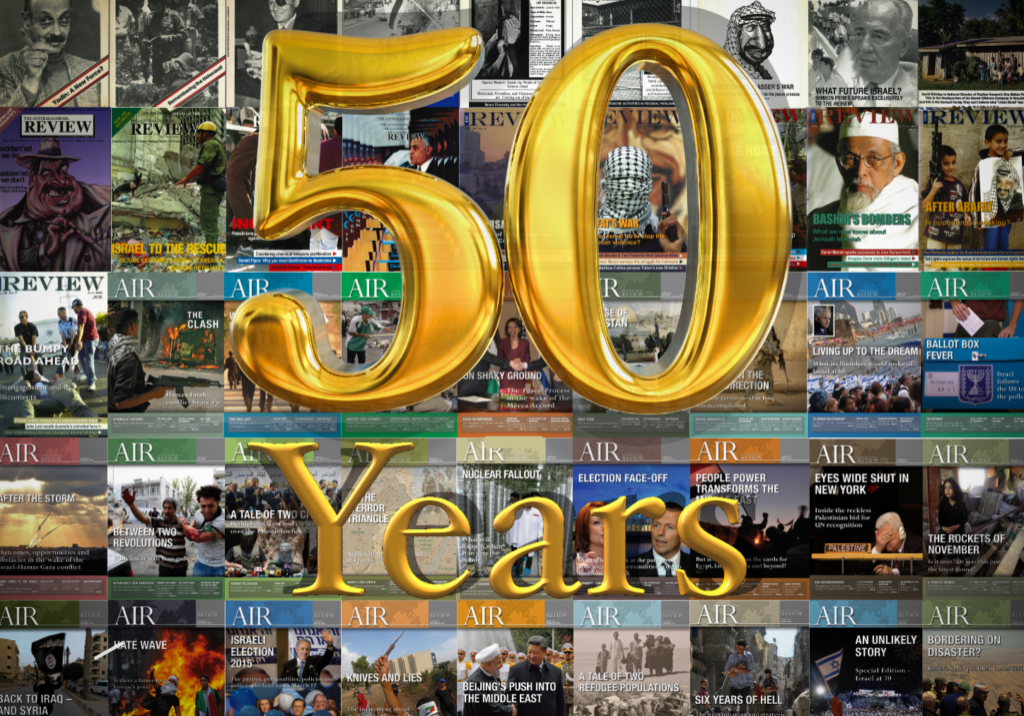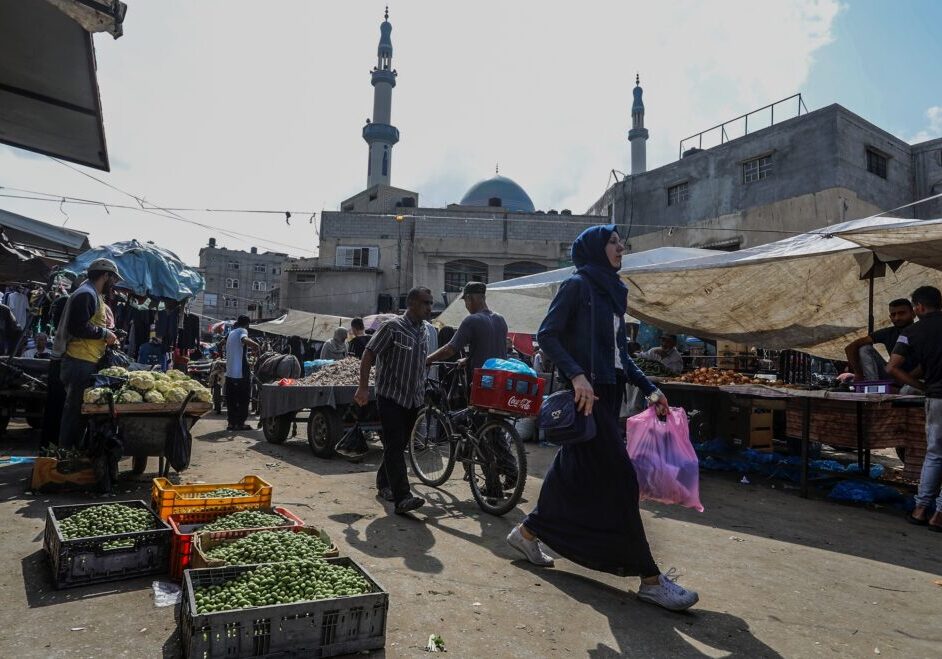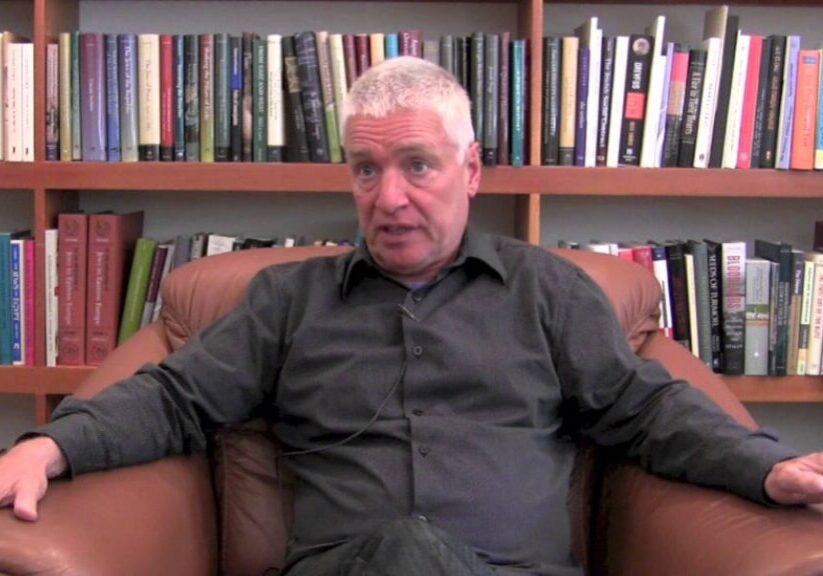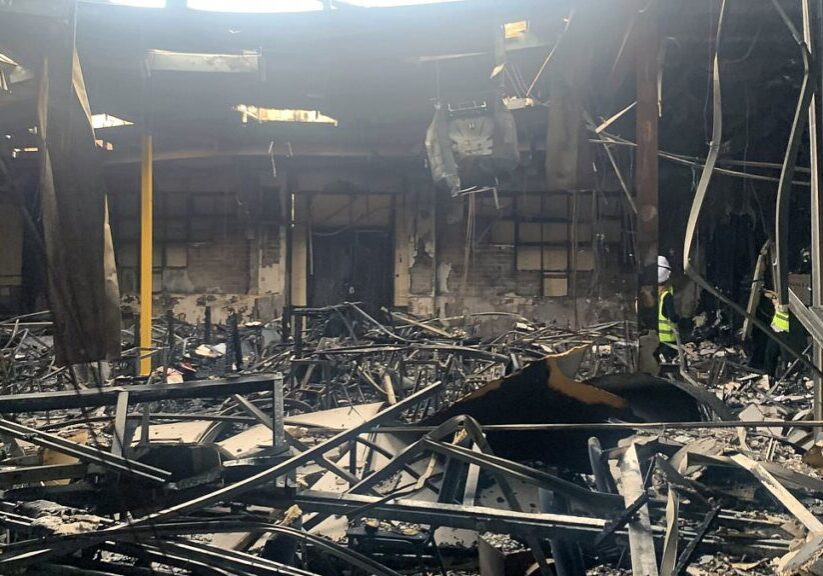Australia/Israel Review
The end of the Arab-Israel conflict?
Nov 3, 2016 | Toby Greene
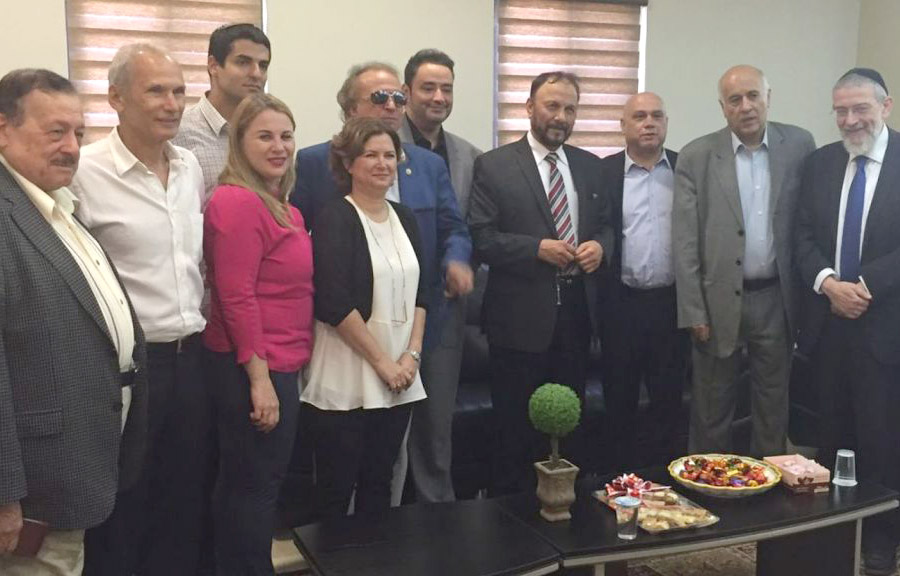
Toby Greene
Change sweeping across the Middle East has prompted several Sunni Arab states to engage more closely with Israel. Shared strategic threats – the growing threat posed by Iran and its allies, the expanding threat of Sunni Jihadism, and US retrenchment – are key drivers, especially for Gulf states, whilst shared opportunities in energy and trade are also factors for Egypt and Jordan.
Israel’s security cooperation with Egypt and Jordan, with which Israel has full diplomatic relations, is deeper and more intense than appears on the surface. Israel’s cooperation with Egypt has intensified around Egypt’s struggle against ISIS-affiliated armed groups in the Sinai, who have developed cooperation with Hamas in the Gaza Strip. Israel has allowed Egyptian military deployment beyond the terms of the Israel-Egypt peace treaty and there are even reports of coordinated Israeli drone strikes in Sinai. Egypt returned its Ambassador to Israel in January 2016, after a three-year hiatus, and Egypt’s Foreign Minister Sameh Shoukry paid a rare visit in July 2016, underlining the warming political relationship.
The potential for economic relations between Israel and both Egypt and Jordan has also increased. In the energy sector, Israel’s development of natural gas resources makes it a cheap potential source of energy for Jordan, and a potential partner for Egypt both as a supplier, and a partner in export infrastructure. Meanwhile the collapse of Syria has raised the significance of Israel as a transit option for trade from Europe and Turkey to Jordan and the Gulf.
Relations with Arab states with which Israel has no official ties – especially in the Gulf – are more obscure but also developing. Israeli officials, led by ex-Foreign Ministry Director-General Dore Gold, allude with increasing regularity to substantive new relationships being formed, on the basis of “identical threats” faced by Israel and several Sunni Arab countries.
In the last 18 months, senior Saudi figures have participated in public panels with Israeli counterparts, led by former Saudi intelligence chief and diplomat Prince Turki al-Faisal and retired General Anwar Eshki. Whilst these individuals are out of office, they presumably act at least with approval from Saudi authorities. These add to a wider array of covert contacts between officials and “track-two” meetings.
In July 2016 Eshki even led a group of Saudis in an unprecedented visit to Jerusalem where they held a meeting with Israeli officials and Knesset members, of which a photograph was published; something that would have been unthinkable until recently. It is also noteworthy that Saudi Arabia agreed to respect the terms of the Israel-Egypt peace treaty when accepting the transfer of sovereignty of two islands in the Tiran Straits from Egypt in April, and that Israel did not object to the transfer.
Analysts following Arabic-language media also note an uptick in articles discussing the merits of a cooperative relationship with Israel, opening up for debate what was once taboo in many Arab states.
In 2015 Israel opened a formal diplomatic mission in the United Arab Emirates (UAE), officially accredited to the International Renewable Energy Agency (IRENA), which is based in Abu Dhabi.
It must be stressed that there is no uniformity among Gulf Cooperation Council (GCC) members on foreign policy or relations with Israel. There is sharp tension in particular between Saudi Arabia and Qatar over the latter’s support for the Muslim Brotherhood, including Hamas in the Gaza Strip. Yet even Qatari officials have worked cooperatively with Israel on Gaza, including on reconstruction projects, and recently in coordinating payments of salaries to Hamas employed civil servants.
Meanwhile Egypt’s President al-Sisi has taken steps to promote an Arab state-led initiative to break the Israeli-Palestinian impasse, based on the Arab Peace Initiative (API). (First proposed by the Saudi Government in April 2002, the API offers Israel the prospect of normalised relations with the Arab world under certain conditions, including concluding a two-state agreement with the Palestinians under specified terms.) Al-Sisi made an unusual intervention in Israeli domestic politics during negotiations for an Israeli national unity government in May, by publicly calling for Israeli political unity to seize the opportunity for regional peace.
Until recently, the prospect of peace with Arab states was offered only after Israel reaches an agreement which satisfies Palestinian demands. The “all or nothing” character of the proposal, as well as specific demands about the final settlement that are unacceptable to Israel, made Israelis wary.
Lately, however, Arab leaders have expressed willingness to pursue a diplomatic process with Israel in parallel to steps towards Israeli-Palestinian peace. This raises questions about whether there is a possibility for a transformational new relationship between Israel and the Arab world, which could lead to, rather than simply be a consequence of, a breakthrough with the Palestinians.
Reflecting the opportunity represented by the shift in the Arab world, Prime Minister Netanyahu has recently taken a more positive line on the API. An attempt to form an Israeli national unity government with the centre-left Zionist Union, in which its leader Isaac “Buji” Herzog would become Foreign Minister, collapsed in May 2016. Herzog was expected to promote a regional peace initiative or summit which could have helped set the context for reciprocal steps from Arab states. Netanyahu’s decision to bring the Yisrael Beiteinu party led by hawkish Avigdor Lieberman into the government instead set back this process.
Nonetheless, at the signing of a new coalition agreement on 30 May, Netanyahu and Lieberman welcomed al-Sisi’s efforts, declaring: “The Arab peace initiative includes positive elements that can help revive constructive negotiations with the Palestinians.” Lieberman has subsequently indicated his willingness to facilitate Palestinian development in Area C of the West Bank, and take steps to alleviate the situation in Gaza.
Why is this change happening?
There has always been more to Arab relations with Israel than meets the eye. There is a decades-long legacy of security and economic contacts between Israel and Arab Gulf states – including covert channels with the Saudis. For a time after the Oslo Accords Israel operated official trade offices in Oman and Qatar, and Israel remains a partner in the Oman-based Middle East Desalination Research Centre (MEDRC). Lately, however, contacts with the Gulf have become more intense and somewhat more public.
The overriding external priority for GCC states is the threat posed by Iran. The Saudis in particular oppose Iran’s quest for regional hegemony and suspect it of seeking to undermine the US-allied Gulf monarchies. Saudi Foreign Minister Adel bin Ahmed Al-Jubeir recently told an audience at Chatham House that “when we look at Iran, we have a country that’s on a rampage.” The antipathy relates to conflicting interests, and competition for regional dominance, but is greatly exacerbated by the sectarian Sunni-Shi’ite divide. Iran openly supported the recent uprisings against Arab governments (except in Syria), which Gulf monarchies saw as a direct threat to their rule.
Meanwhile Israelis regard a nuclear-armed Iran as their primary national security threat, due to Iran’s ideological commitment to Israel’s destruction, and its use of armed proxies like Hezbollah, Hamas and Islamic Jihad in a war of attrition against Israel. Israel and the Gulf States’ common concerns are heightened due to the nuclear deal, which they believe will strengthen Iran with the removal of sanctions and lead it to the threshold of nuclear weapons when the deal expires in 10-15 years.
In addition, instability created by the conflicts in Iraq and Syria, Arab uprisings elsewhere, and the rise of ISIL/Daesh has heightened Gulf Arab concerns over their internal stability and created new opportunities for Iran to project influence via proxies, including in Syria, Lebanon, Iraq and Yemen.
This nexus of threats is combined with concern at the Obama Administration’s retrenchment policy. The clashes between Netanyahu and Obama over Iran and the Palestinian issue are well known but Obama’s relations with Saudi leaders have been little better.
Obama has little time for a Saudi monarchy he considers misogynistic and responsible for the promotion of extremism. The Saudis regard Obama as unreliable after he abandoned Mubarak in Egypt and failed to act on his “red lines” in Syria. Most of all Saudis fear Obama’s strategy of reducing America’s role in Middle East security by creating a “cold peace” in which the Saudis “share” the region with Iran.
US retrenchment heightens Israel’s value as an ally against radical forces: both Iran and its proxies, and Sunni Jihadists.
Regionally, the Saudis along with other Sunni states would like to build a more cohesive bloc to counter Iran’s influence, in which Israel could be a formidable ally.
Furthermore, Saudi Arabia’s more assertive regional policy reflects a generational change in its leadership. Muhammad bin Salman, the recently appointed 31 year-old Deputy Crown Prince and Defence Minister, is associated with a greater determination to confront Iran, as demonstrated by the Saudi intervention against Iranian backed Houthi rebels in Yemen. He is believed to be open-minded in his attitudes to Israel.
What does Arab-Israel cooperation mean in practice?
The potential for cooperation in economic, security, technological and even diplomatic fields is considerable. Yet in each case, the extent of the cooperation is limited by differences over the Palestinian issue. Arab leaders are very wary of being accused of betraying the Palestinians.
For Arab states with no formal relations with Israel, there is scope for quiet contacts at the official level through covert diplomatic channels, via intelligence agencies and in multilateral forums or international capitals with the assistance of third parties, especially the US.
This is in addition to unofficial “track-two” and semi-official contacts involving ex-officials which are already becoming more frequent and public. Whatever the framework, it is clear there are a lot of shared interests to discuss, including:
Regional security and stability
For Saudi Arabia, the UAE, and in varying degrees the other GCC countries, Iran is the primary concern, along with Hezbollah, its most powerful proxy. The GCC recently designated Hezbollah as a terrorist organisation. The Lebanese organisation, working with its Iranian patrons, has expanded its regional role with its significant deployment fighting with Assad’s forces in Syria and its role supporting Iranian-aligned forces in Iraq and Yemen. Israelis have long regarded Hezbollah as by far the most potent of the armed forces on its borders, with over 100,000 rockets aimed at Israel from south Lebanon. Therefore the potential for intelligence coordination in efforts to inhibit Hezbollah’s actions is considerable.
At the same time, Saudi Arabia has found itself facing an Iranian backed militia on its own borders in its conflict against Houthi rebels in Yemen assisted by Iran and Hezbollah. Saudi Arabia is now experiencing missile attacks on its cities such as Israel has faced from Hezbollah, Hamas and Palestinian Islamic Jihad for many years. Najran in southern Saudi Arabia has repeatedly come under rocket attack from Houthi forces in Yemen, with civilians killed. This opens up the question of long term of cooperation in missile defence. Whilst the Saudis currently rely on US Patriot systems, Israel’s Iron Dome is the missile defence system most capable of reliably intercepting short range rockets, with Israeli capabilities against mid and long range missiles also advancing rapidly.
The use of cyber technology in the security realm is another area where Israel offers leading-edge capabilities that could benefit Gulf Arab states, and there is evidence of considerable trade, including in cyber technology, already taking place between Israel and the UAE. The massive cyber-attack on Saudi Aramco’s computer systems in 2012 brought home the scale of this issue in the Gulf, and Iran is regarded as being strong in this field.
Looking regionally, Israel and Saudi Arabia are each working to promote stability in Egypt and Jordan. Israel coordinates closely with both on security issues, whilst in recent months Saudi Arabia has expanded financial assistance to both countries.
Diplomatic coordination
Israel, and certain Gulf states, notably Saudi Arabia and the UAE, increasingly find themselves on the same side of arguments in Washington over US Middle East policy, whether that be opposing the accommodationist policy towards Iran, or calling for the US to back the al-Sisi Government in Egypt. Private contacts between Israeli ambassadors and their Gulf Arab counterparts are tacitly acknowledged (e.g. by former Ambassador Michael Oren in his recent memoir) and the potential for greater coordination is considerable.
Economy and hi-tech
Whilst security cooperation may be the Saudis’ first priority, some of their leaders speak openly of a bolder vision for economic cooperation with Israel. Saudi Prince Turki al-Faisal, sharing a stage with former Israeli national security adviser Maj. Gen. (ret.) Yaakov Amidror in May, amused his audience with the assertion that, “with Jewish money and Arab brains we can go a long way together,” adding, “if we can get that situation – think of what we can do on science, on technology, on humanitarian affairs”.
Israel could represent an important opportunity for the Saudis as they seek to diversify economically, given that Israel is a highly developed knowledge economy known for its prowess in hi-tech and its entrepreneurial spirit, which also has a significant Arab-speaking population. Meanwhile the Arab world represents a huge potential opportunity for Israel’s electronics, medical technology and other hi-tech exports. There are also specific shared challenges and opportunities where Israeli technology could serve the Arab world, such as water conservation and solar energy.
Indeed, a full normalisation of relations between Israel and the Arab world would have a transformational impact for Israel – finally realising the Zionist vision of a state which enjoys full legitimacy and recognition in the Arab and wider Islamic world.
How do Arab-Israel relations relate to the Palestinian issue?
There is currently a heightened motivation for Sunni Arab leaders to bring about a resolution to the Israeli-Palestinian conflict. For Egypt and Jordan in particular, the potential instability that may follow the departure of PA President Mahmoud Abbas (who is 81), and the possibility that Hamas may fill the void, is a source of considerable concern. This helps explain the unusual readiness of President al-Sisi to assert himself on the issue.
For Sunni Arab leaders in the Gulf, whilst the Palestinian issue is far from their top priority, it increasingly appears to be a strategic liability, quite apart from any sense of duty felt towards the Palestinians, or the emotional pull relating to the resonance of the issues for Arab and Islamic public opinion. In the past, Arab leaders used the Palestinian issue as a source of Arab unity and domestic legitimacy. Now, however, it serves as a tool for radical Islamist elements – both ISIL and Iran – to discredit them and win support for their revolutionary anti-Western agenda.
Iran in particular has long sought popular appeal in a Sunni Arab world generally distrustful of the Shi’ites by positioning itself as a pillar of “resistance” to Israel – particularly in its support of Hamas, Islamic Jihad and Hezbollah. Iran has actively undermined all efforts to resolve the conflict, thereby preventing the formation of an Israeli-Sunni Arab bloc.
The bilateral Israeli-Palestinian track ran aground with the failure of the 2013-14 Kerry initiative, and currently has little prospect of revival. Many Israelis assume that Abbas is so weak and the Palestinians so fractured, that no matter what Israel offers, Abbas cannot make any reciprocal concessions. Israelis such as Amidror also argue that US and European indulgence of Palestinian intransigence, including European support for Palestinian attempts to “internationalise” the conflict and avoid bilateral negotiations, has contributed to the current diplomatic impasse.
The PA would prefer a process in supportive international forums which endorse Palestinian positions without making concessions to Israel. They are wary of Israel and Arab states coming together to impose a position on them. Yet the recent French initiative – attractive to the Palestinians precisely because it avoids them entering bilateral talks – is openly rejected by Israel and has only lukewarm international support. A recent Russian initiative to convene a meeting between Netanyahu and Abbas also seems unlikely to generate substantive progress.
In this context, Prime Minister Netanyahu argues that Israeli-Arab coordination would be the best way to establish a framework for Palestinians to re-enter direct talks with Israel. Netanyahu recently told CNN: “By nurturing these relationships that are taking place now with the Arab world that could actually help us resolve the Israeli-Palestinian conflict.” Israeli officials argue that an Arab “umbrella” is required, both to provide Israel with additional incentives in the form of normalised relations, and to provide Abbas with the political legitimacy to make a deal with Israel.
However, Saudi representatives make clear that normalisation of relations cannot happen without progress towards an Israeli-Palestinian agreement, in their public and private contacts with Israeli counterparts. The Palestinian issue, though less central for Arab public opinion than in the past, remains potent. Arab leaders are wary to risk challenging domestic or global Islamic opinion with a bolder strategy including more open relations with Israel or a tougher line against Hamas, and therefore require considerable confidence that Israel is committed to substantive progress on the Palestinian issue.
Many Israelis on the centre and left of the spectrum argue that Israel should do more to proactively seize this opportunity.
Whilst Israel has in recent months taken some steps to increase Palestinian development opportunities in Area C and improve the situation in the Gaza Strip, and Netanyahu and Defence Minister Lieberman have made warm statements about the API, the scope for further measures will likely be limited without a change in the Israeli coalition.
Conclusions and recommendations
The thaw between Israel and the Sunni Arab world is an opportunity that Western powers should welcome and encourage. Hopes that the nuclear deal would help transform Iran into a force for regional stability have not been borne out in the last 12 months. Iran’s radical regional ambitions, wrapped in its deep-rooted anti-Western ideology, and its potential to undermine the stability of its Arab neighbours, appear only to be growing. An Arab-Israeli regional bloc represents an opportunity to contain Iran and its attempts to foment and exploit regional instability.
The increasing openness to Israel in the Sunni Arab world also represents probably the best opportunity to break the deadlock in the Israeli-Palestinian arena. Egypt is ready to take a more prominent role and several Arab states – notably Saudi Arabia and the UAE – are apparently willing to be more flexible on the process towards normalisation.
However, the Saudis and other Gulf states will remain highly sensitive to Arab public opinion and will not move towards any official normalisation of relations with Israel, or put pressure on the Palestinians, unless they believe there is a very good chance that a Palestinian state will emerge from the process.
Whilst a much bolder Israeli approach is hard to envisage with the current Israeli coalition, there is still potential for movement. Lieberman has demonstrated some pragmatism by backing Netanyahu’s positive statement on the API, expressing willingness to allocate land in Area C for Palestinian economic and infrastructure development, and expressing support for steps to ease the situation in Gaza. And whilst the possibility of Herzog entering the coalition as foreign minister receded after Lieberman’s entry, there are regular reports of this possibility still being explored.
In this context, third parties, such as the US and the UK, along with other European governments, should unite in support of those pursuing this process, including President al-Sisi, and incentivise both Israel and Sunni Arab states to unlock the potential of this moment, which may not last indefinitely. For the Arab states this would include offering steps towards normalisation that would make it politically feasible for Israel to make a more tangible commitment to Palestinian statehood and the API, along with steps to improve the situation on the ground in both the West Bank and Gaza Strip.
At the same time the Palestinians should be encouraged to look positively on a regional process and reassured about the end goal. As has been demonstrated in recent years, the PA’s attempts to use international forums to impose terms for ending the conflict outside the context of bilateral negotiations only deepen the wedge between the parties and raise unfulfilled Palestinian expectations leading to more frustration on the ground. By contrast, an initiative built around a thaw in Israeli-Arab state relations and a regional summit of Israel and Arab states could raise the Palestinian issue back up the regional diplomatic agenda, give the PA the political support to establish a substantive diplomatic process with Israel, and bring tangible benefits for Palestinians on the ground.
The deep anti-Iran and anti-Hezbollah sentiment in the Arab world is an opportunity to change Arab perceptions of Israel and help desensitise Arabs to normalisation with Israel. More Arab figures should be encouraged to follow the example of Anwar Eshki, and bring delegations to Jerusalem to meet publicly with Israeli parliamentarians or civil society, in the framework of attempting to bring about a Palestinian state.
Arab states should also be encouraged to assist in developing the capabilities and standing of the PA, including political support and financial support for infrastructure development the West Bank, alongside Israel improving movement and access and facilitating more Palestinian development in Area C. This should include preparing for the day after ageing Abbas departs the scene, which presents the threat of chaos and an opportunity for Hamas to step in.
This is in addition to assisting in efforts to alleviate the humanitarian situation in Gaza, by supporting a long-term ceasefire that would restore the PA’s active role, facilitate reconstruction, and improve access via Israel and Egypt. Rehabilitating the inadequate water and electricity infrastructure is a priority, and Arab states should fulfil pledges made after the 2014 conflict. (So far the GCC countries have disbursed only a fraction of their pledges.) Israel’s security establishment supports steps to alleviate the crisis in Gaza and stabilise the situation.
Arab states which want to marginalise radical elements should encourage the PA to take the lead, and avoid as far as possible empowering Hamas. So far the biggest regional investor in Gaza is Qatar, which along with Turkey is supportive of Hamas.
The UK and other Western powers should work consistently to thwart potential spoilers. Iran and its proxies, especially Hezbollah, could use renewed conflict with Israel to drive a wedge between Israel and the Arab states and rebuild their standing in the region, badly damaged by their role in Syria. The possibility of a conflict is ever present, following the Israel-Hezbollah conflict in 2006, and the rounds of conflict between Israel and Iranian backed armed groups in the Gaza Strip in 2008-09, 2012 and 2014. In 2014, whilst Israel and Egypt coordinated their efforts to formulate a ceasefire, the US sought to include Hamas’ backers, Turkey and Qatar in the process. In future, Western powers should recognise the priority of containing radical anti-Western forces and back those states in the region aligned around that goal.
Dr. Toby Greene is Senior Research Associate for BICOM (The Britain Israel Communications and Research Centre) and its former Director of Research. © BICOM, reprinted by permission, all rights reserved.
Tags: Egypt

